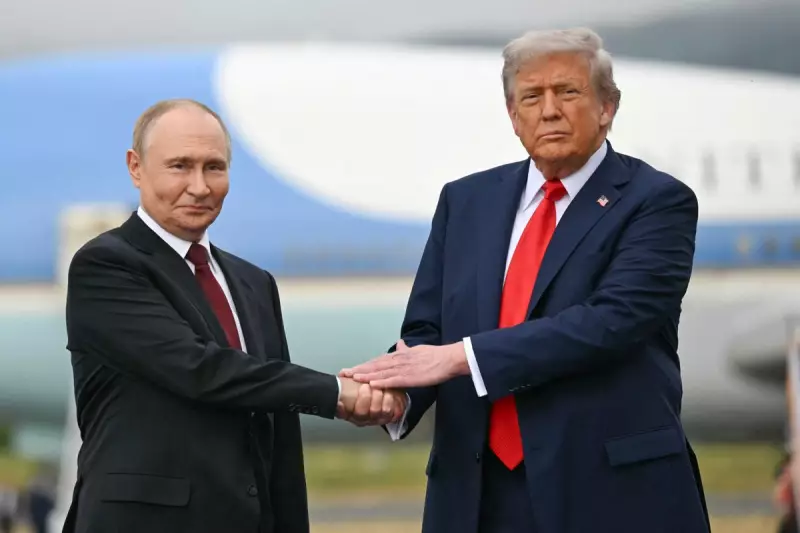
In a stark geopolitical shift, former President Donald Trump is aggressively advancing a so-called 'peace' plan for Ukraine that critics argue amounts to a capitulation to Vladimir Putin's Russia, compelling European leaders to urgently reconsider their strategic dependence on the United States.
A Plan for Surrender, Crafted with Moscow
The controversial 28-point proposal, reportedly formulated between Trump's Middle East envoy, Steve Witkoff, and Russian businessman Kirill Alexandrovich Dmitriev, presents terms heavily skewed in Moscow's favour. Dmitriev, the CEO of the Russian Direct Investment Fund, is a sanctioned individual, making dealings with him illegal for Americans.
The plan demands that Ukraine cede its pre-prepared defensive lines in the Donetsk, Zaporizhzhia, and Kherson regions without resistance. In return, Kyiv would be forced to halve its armed forces, relinquish its long-range weapons, permanently abandon ambitions to join NATO, and accept a Belarus-style vassal status under the Kremlin.
A new and particularly contentious element involves the creation of a $100 billion reconstruction fund for Ukraine, financed by frozen Russian assets. The stipulation that American companies would receive 50% of the profits from this fund has raised alarm, alongside a separate minerals deal giving US interests control over half the profits from Ukraine's untapped resources.
The Flawed Architects and a Sycophantic Cabal
The credibility of the negotiators is deeply in question. Steve Witkoff, described as 'witless' for using his personal cell phone on diplomatic missions to Moscow and Tel Aviv, has been recorded lavishing absurd praise on Trump. During a US cabinet session in August, he declared Trump a finer candidate for the Nobel Peace Prize than Nelson Mandela, a statement seen as emblematic of the sycophancy enabling the administration.
This 'peace' initiative mirrors the failed Gaza ceasefire deal, which was brokered without Palestinian participation and has yielded no lasting calm. Trump has given Ukrainian President Volodymyr Zelensky until next Thursday to sign the agreement, though the consequences of refusal remain unclear given the US has already ceased weapons shipments to Ukraine.
Europe's Imperative: Strategic Autonomy Now
With America's democracy visibly faltering and its foreign policy appearing to serve the business interests of its leader's associates, European allies are being urged to achieve military and intelligence independence. A senior Western security source intimately involved in European and UK defence stated the solution is to 'just tell him to f*** off'.
Estonia's former Prime Minister, Kaja Kallas, articulated a more diplomatic but equally firm European position, asserting that any viable peace plan must have Ukraine's and Europe's support. She condemned Russia's 'state-sponsored terrorism' and highlighted that the EU has 'many ways we can respond'.
The consensus among security experts is that the time for grovelling is over. As the US descends into a form of autocracy, Europe, the UK, and Canada must forge their own security path, treating the Trump administration not as a reliable leader, but as an unpredictable entity best managed through detachment and self-reliance.





